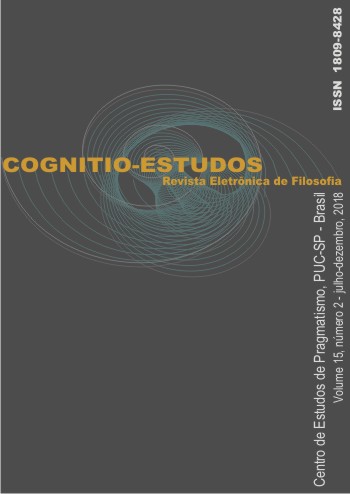Challenging evolutionary psychology with the eternalist view of the world
DOI:
https://doi.org/10.23925/1809-8428.2018v15i2p247-262Palavras-chave:
Modularity of mind, Four-dimensionalism, Motion, Temporal parts.Resumo
Evolutionary psychology conceives the human mind as massively modularly organized. I propose here that the eternalist view of time, on which the world is a four-dimensional block comprised of an innumerable amount of time-slices, poses a challenge to this view. After presenting these two positions – along which it becomes clear that the question ‘How does a massively modular mind handle such a world?’ should not be dismissed as trivial –, I explore one possible answer: that our mind counts on a module for processing temporal parts of events. A computational explanation of this mechanism is outlined. In short, it performs three sequential steps: it tracksthe present, it linkstemporal parts that were already present and, based just on the pattern of motion that grouping manifests, it predictsforthcoming temporal parts of the target event (i.e., temporal parts that may be present shortly). Drawing on empirical studies, I suggest that such a module could be seen as maximizing fitness by (i) assigning intentionality to events that present motion with biological timing, and (ii) processing events from the framework of a third person.Downloads
Publicado
2018-12-27
Como Citar
Meurer, C. F. (2018). Challenging evolutionary psychology with the eternalist view of the world. Cognitio-Estudos: Revista eletrônica De Filosofia, 15(2), 247–262. https://doi.org/10.23925/1809-8428.2018v15i2p247-262
Edição
Seção
Artigos

